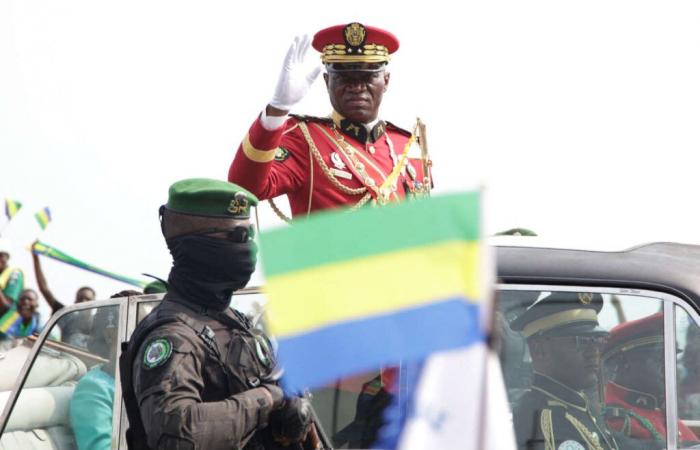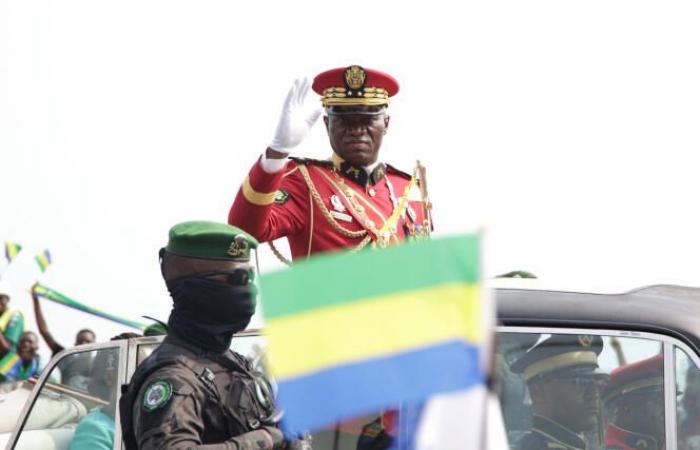What distinguishes the future two-story building under construction on the campus of Omar Bongo University in Libreville, the largest in Gabon, is not only that once finished, its modernity will contrast with the rest of the outdated facilities dating from the 1970s. Its particularity is contained in four red letters: CTRI.
The acronym of the Committee for the Transition and Restoration of Institutions is written in large letters at the top of the sign describing the work, like the name of an actor bursting out at the top of the billboard. It reminds all Gabonese that power abruptly changed hands on August 30, 2023. On that day, a year ago, the military ousted Ali Bongo Ondimba, putting an end to a fifty-six-year-long republican family dynasty opened by the nation’s patriarch, Omar Bongo Ondimba.
The CTRI is the polite name for the junta of officers led by the former head of the Republican Guard, General Brice Clotaire Oligui Nguema. “A state within a state placed above the government”according to a former minister. The CTRI now calls the shots in this small Central African country (2.2 million inhabitants, half of whom are under 20) sitting on oil reserves that are, theoretically, more than enough to make its inhabitants happy. If it weren’t for the poor governance and the gluttonous appetite of the leaders and their entourage who, for decades, have eagerly dipped into the state coffers.
Read also | In Gabon, General Oligui Nguema under financial pressure almost a year after taking power
Add to your selections
Gabon is thus lagging behind at 123e place among the 193 countries ranked by the United Nations according to their level of human development. And more than a third of Gabonese live below the national poverty line, set at $5.50 per day.
“It’s the prince’s doing”
On the campus of Omar Bongo University, these development problems translate into chronic under-equipment. Some 30,000 humanities students share facilities designed for 10,000. “For each class, we have four groups at different times because the rooms are too small.”explains historian Stéphane Mehyong, vice-president of the National Union of Teacher-Researchers (SNEC): “There had been no investment for years. This new building [pouvant accueillir 800 étudiants] is therefore good news.
Its construction is financed by part of a 14 billion CFA franc (21.3 million euros) envelope dedicated to universities that the CTRI pulled out of its hat. “It’s the prince’s doing”continues Stéphane Mehyong, taking up a criticism that is common in the streets of Libreville: “These billions allocated by the president are not included in the higher education programming law and we do not know what this building, which will not be ready for the next school year, is intended for.” An allusion to the surprise announcement by the CTRI of the creation of a faculty of sciences at Omar Bongo University. “With which teachers? What budget? In which buildings?” asks Stéphane Mehyong.
You have 66.54% of this article left to read. The rest is reserved for subscribers.







